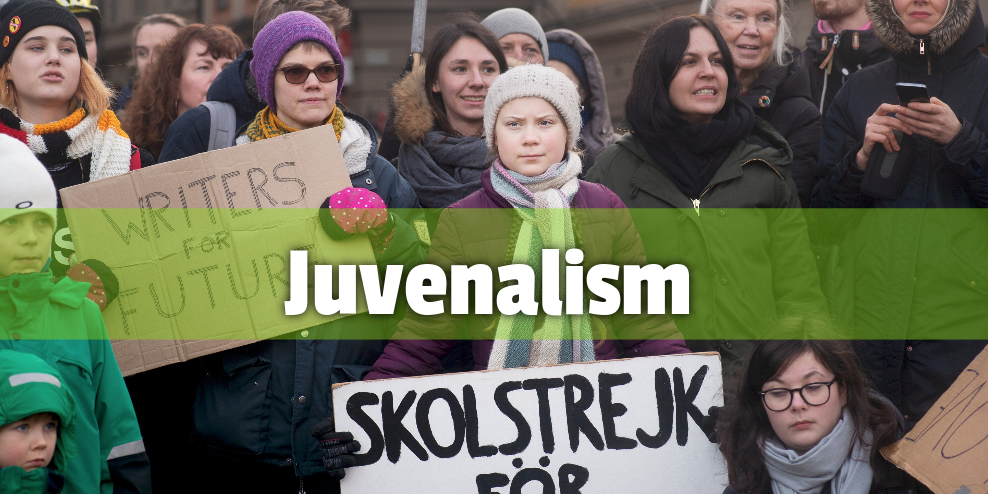Juvenalism

Ideology that purports that in a situation of crisis and historical "emergency", young people are best suited to provide direction because their ideas are "new" and are not marked or constrained by the weight of immediate interests. Young people would thus speak "on behalf of the future".
Historical origins of juvenalism
In 1896 the first nucleus of the Wandervogels appears. They first appear as an expression of the discontent of the German petty bourgeoisie in the midst of the expansion of imperialism. They revived German romanticism through an ideology that emphasized the "return to nature" and an ambiguous "emancipatory" discourse that could be used to both vaguely criticize capitalism and to criticize the family and educational models of the time.
The rejection of urban life and its "artificiality" was contrasted with the "simplicity" of the hiking life. The discovery of the landscape became equivalent to that of Nature. The Wandervogel soon inaugurated the mountaineering uniform - shorts, scarf, hobnailed boots, raincoat, hat or cap - the love of the "campfire", and a songbook for guitar and lute that marked the beginning of German folk.
With the development of the movement, juvenalist ideas will appear: young people, "cleansed" of the old world, are the ones who are called to bring "the new ideas" that will emancipate society, overcoming the tensions, violence and crises of a world that is already old.
The combination of romantic essentialism, aesthetic anti-capitalism and exaltation of the landscape led "spontaneously" to the exaltation of leadership and nationalism. The Wandervogels soon became hierarchical and turned into unarmed, populist paramilitary groups.
Not only did they exclude women, they also excluded Jewish or foreign boys. Gradually the naturalism of the ideology became paganistic, thus generating a Germanic mythology of its own.
Yes, it is what it seems: the Nazi ideological pastiche was already being sketched out and shaped the imagination of thousands of petty bourgeois boys before the first imperialist world.
So much so that in 1912, "Vortrupp" (Vanguard), one of the most influential groups of the movement, took up eugenics as its banner and initiated a discourse that promoted "racial hygiene" through the prohibition of tobacco, beer, and so forth. When in 1933 the Nazis came to power and dissolved the independent youth organizations, most groups joined the Hitler Youth of their own free will.
Those who did not, became "pirates of the Edelweiss", roving bands of young people dedicated to street fighting with their Hitlerite ex-comrades who vented their rage without ever finding a political north or serving as anything other than dissolvers of the struggles in the factories.
But these were not the only consequences. After Baden Powel used the model in the English-speaking world as a guide to create future conquerors and soldiers for the British Empire, there was no unredeemed European nationalism that did not create uniformed youth groups and hikers to indoctrinate militants at the age of adolescence, if not childhood. As this model was adopted, there still remained drops of juvenalism that would end up distilling and merging into the cult of youth of Italian and Spanish fascism.
But despite the importance of these shifts, the original juvenalism did not disappear either. In 1920, a group of young Christians formed the first community of Bruderhof, a movement that continues to this day and is dedicated to creating and living in communities of goods. Persecuted by the state during the Nazi government, they ended up in exile in Great Britain, Paraguay, the US... and tried to join the Hutterites, old Anabaptist communalists that date from the time of the German peasant revolutions (16th century). A curious return -which also went wrong- to its original Christian juvenalism.
And something similar happened with the Jewish youth movements also created along the lines of the Wandervogels. They went from the "search for meaning" to the discovery and rejection of the kibbutz first and from there to their ultra-nationalist "reinvention" later.
In fact the discourse of the Hashomer Hatzair, the most influential and numerous group coming out of the youth movements that organized migrations to Palestine in the 1920s and 1930s, bordered on anti-Semitism: according to them only the new youth, emancipated from their families and from the secular culture of subjugation and oppression that was Jewish culture, could create a new moral and even physical type and lead the working masses of colonial Palestine.
In the mid forties they were already fully integrated into Stalinism which, during the two previous decades, had massacred the heart of the Bolshevik party. It was they who, via Czechoslovakia, armed the first Israeli army in 1948 with the rifles sent by Stalin.
Juvenalism and decadence
The dates and contexts of juvenalism, as well as its current revival, encouraged by the states as a propagandistic pillar of the "Green Pact", demonstrate that the development of juvenalism is accompanied by the decadence of the system. In fact, juvenalism forms part of the "revolution of manners" driven by the petty bourgeoisie since 1870, and it could be said that it marked the first ideological symptoms of decadence.
It is no coincidence that the few antecedents of juvenalism appeared in the final phases of both slavery and feudalism. The idea that those who symbolically represent the future -the youth- are the only ones who can represent a better future in the present, reveals the inability of the system to represent and materialize the general interests of Humanity.
These movements are thus an evident symptom of the moral collapse characteristic of the phases of decadence of all modes of production. And for the same reason, these movements reveal a furious reactionary character in denying the revolutionary class already present.
http://dictionary.marxismo.school/Juvenalism